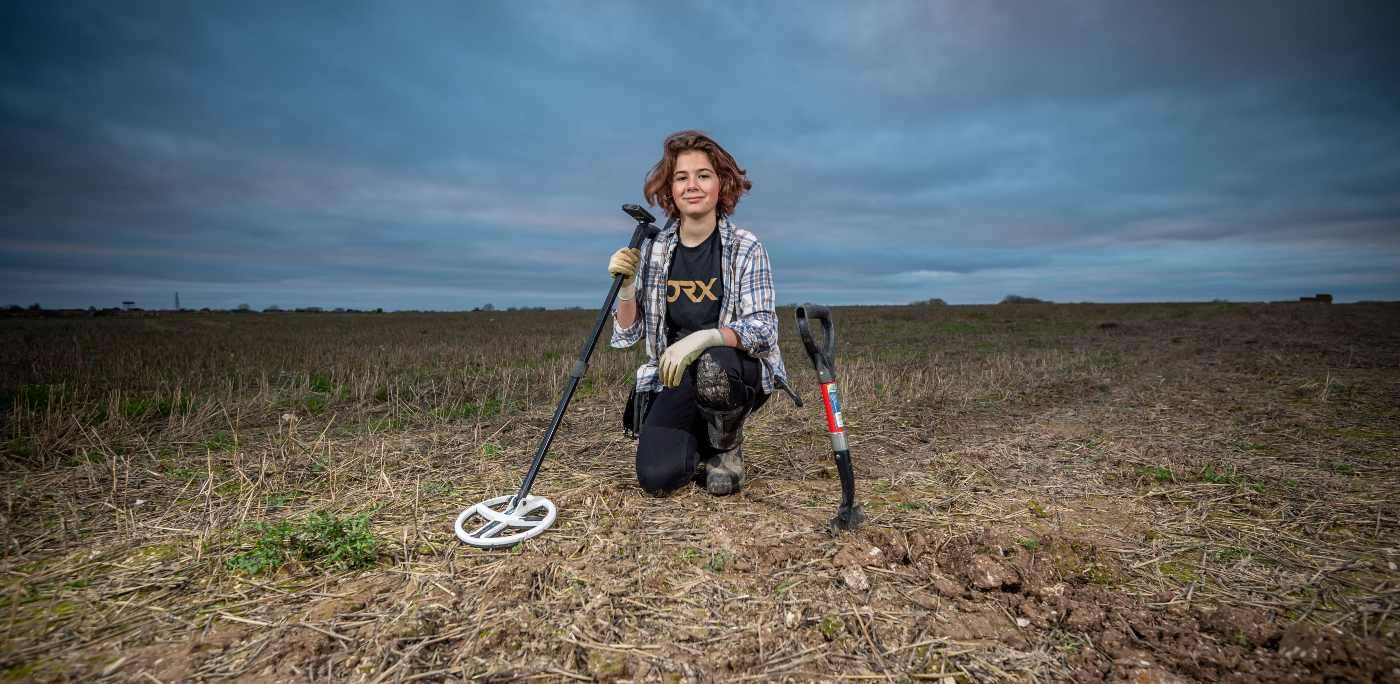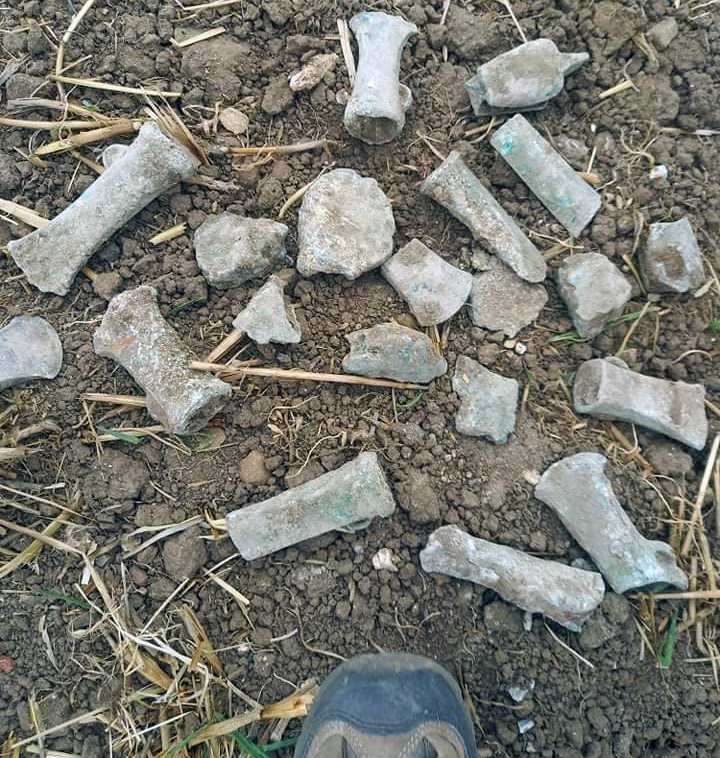Youth Hailed for Providing Renewable Energy to 10,000 People Without Using Battery, Wind, Sun, or Water
A young man in Sierra Leone has won international prizes for his innovation in energy, with kinetic-electricity creating light for 10,000

A rising star among the UK's passionate "detectorist" community has found a buried hoard of 65 objects, many of which are bronze axes.
It's being called a once-in-a-lifetime find, one which had to be handled by archeologists, and which is now undergoing the British government's Treasure Review to determine if the nation will purchase the artifacts.
Milly Hardwick from Suffolk was out detecting in a field with her dad Colin, when the 13-year-old made the find.
"It was my third time out and I didn't quite know what I was doing," Milly told the BBC. "I got a signal and yelled at my dad and when he started digging he went ‘this could be an axe', and he was joking around about it."
It's thought the axes and other objects, 65 in total, date from around 1,300 BCE. After finding the first 20, the father-daughter team had to cover the site back up until archeologists could come the next day.
She took the day off of school to go with her father and give the find to the local coroner to be sent off for review.

Milly says if she receives any money from the hoard she will split it with the landowner, typical of the sometimes millions of pounds in payments detectorists can receive for important finds like the recently-deemed-treasure hoard of gold coins from the Anglo-Saxon period.
Milly, who is now so taken with detecting she wants to be an archeologist, is on a bit of a hot streak, and the axe hoard has made her somewhat of a celebrity among British detectorists. She was featured on the cover of Searcher magazine, and her mom Claire says she gets noticed when she's out with her metal detector.
"There's been times when people have gone ‘Oh no, she's here, we might as well go home now,' and there's been a couple of digs they've been on since she found the hoard and when she's got out the van people have given her a round of applause," Claire told ITV News. "It's massive, massive, some people detect for forty, fifty years and don't find anything like that."
Smithsonian reports the British Bronze Age started around 4,300 years ago, when ancient Britons began melting tin and copper together to make bronze.
"Because it's happening to us it's lovely anyway, but it's also nice that it's happy news rather than some of the depressing news we've had lately," Claire tells the BBC.
We couldn't agree with you more, Claire.
UNEARTH the Good News; Share This Story….
Be the first to comment